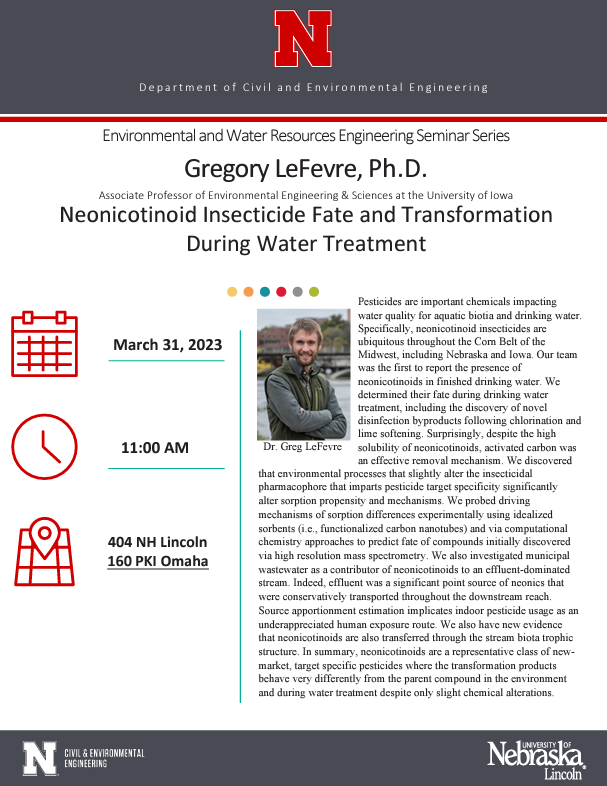
Gregory LeFevre, Ph.D.
Associate Professor of Environmental Engineering & Sciences at the University of Iowa
Neonicotinoid Insecticide Fate and Transformation During Water Treatment
March 31, 2023
11:00 AM
404 NH Lincoln
160 PKI Omaha
Pesticides are important chemicals impacting water quality for aquatic biotia and drinking water. Specifically, neonicotinoid insecticides are ubiquitous throughout the Corn Belt of the Midwest, including Nebraska and Iowa. Our team was the first to report the presence of neonicotinoids in finished drinking water. We determined their fate during drinking water treatment, including the discovery of novel disinfection byproducts following chlorination and lime softening. Surprisingly, despite the high solubility of neonicotinoids, activated carbon was an effective removal mechanism. We discovered that environmental processes that slightly alter the insecticidal pharmacophore that imparts pesticide target specificity significantly alter sorption propensity and mechanisms. We probed driving mechanisms of sorption differences experimentally using idealized sorbents (i.e., functionalized carbon nanotubes) and via computational chemistry approaches to predict fate of compounds initially discovered via high resolution mass spectrometry. We also investigated municipal wastewater as a contributor of neonicotinoids to an effluent-dominated stream. Indeed, effluent was a significant point source of neonics that were conservatively transported throughout the downstream reach. Source apportionment estimation implicates indoor pesticide usage as an underappreciated human exposure route. We also have new evidence that neonicotinoids are also transferred through the stream biota trophic structure. In summary, neonicotinoids are a representative class of newmarket, target specific pesticides where the transformation products behave very differently from the parent compound in the environment and during water treatment despite only slight chemical alterations.